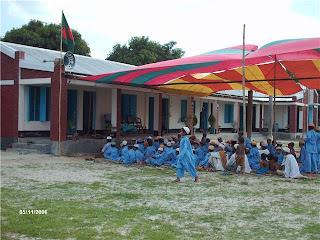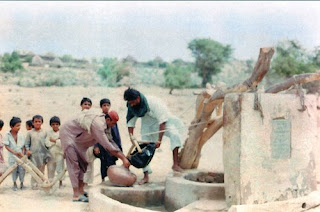Charity – Sadaqah
1. Text and Translation
On the authority of Abu Huraira (may Allah be pleased with him), who said: The Messenger of Allah (may the blessings and peace of Allah be upon him) said:
Each person’s every joint must perform a charity every day the sun comes up: to act justly between two people is charity; to help a man with his mount, lifting him onto it or hoisting up his belongings onto it is charity; every step you take to prayers is a charity; removing a harmful thing from the road is a charity.
It was related by al Bukhari and Muslim.
2. Importance
This hadith is invaluable for the upbuilding of the person’s character, his every joint or member of his body and his actions have value and meaning in the view of Islam and its philosophy.
 3. Performing Charity for Ourselves
3. Performing Charity for OurselvesThe numerous numbers of joints in the person performs and produces charity for his ownself everyday if only the person could realise this and knows how to be charitable.
In another hadith, it relates to the levels in undertaking charity. When the Prophet s.a.w. was asked if one is unable to enjoin good and to forbid evil, then one is to remove harmful things from the road. If the person is unable to, then to help the weak. And even if the person is still unable to, then to stop from being harmful to others. Charity does not stop.
Another hadith mentions that everyday every joint of the person performs charity. Every tasbih (glorifying God), every tahmid (praising God), every tahlil (testifying to the unity of God), every takbir (declaring the greatness of God), enjoining good, forbidding evil are all charity. And the performance of two rakaats of salat Dhuha encompasses all of this.
 4. Charity for Others
4. Charity for OthersThis is where the charity is for others to benefit and the rewards are for the person performing the charity.
One of them is to act justly between two people. This concerns making peace between people in conflict or dispute. We ought to find the best ways and means to reach mutual good and to avoid self interests, bias and stay away from being unjust in this kind of situation. This is then justice which will bring good which in turn brings rewards because it is charity. However, this could be difficult and challenging.
There are other easier things that can be done:
Helping a person with his mount, his baggage. This means helping, giving aid to others in need.
 Saying a good word, even something short but beneficial and meaningful. This can be the greetings of salam, giving good counsel and advice or words of wisdom and encouragement. This is charitable to others and oneself and strengthens the bond of brotherhood.
Saying a good word, even something short but beneficial and meaningful. This can be the greetings of salam, giving good counsel and advice or words of wisdom and encouragement. This is charitable to others and oneself and strengthens the bond of brotherhood.Every step to the masjid is a proof of obedience to God.
Removing harmful objects, removing danger and hazards makes the environment safer and better for the public.
Also included are journeys a friend undertakes to meet his friend’s request or promise. The lender in prolonging the repayment of a loan due to hardships and difficulties faced by a borrower is also charity.
Other simple examples are to offer laces for a friend’s shoes, serving/pouring a drink for others and portraying a happy face beaming a smile whenever one meets people.
In conclusion, by using all of our means and functions for good, for the religion; all are considered charity performed for the benefit of our ownselves.
Reference:
An Nawawi’s Forty Hadith, translated by Izzedin Ibrahim & Denys Johnson-Davies
Hadith 40 Terjemahan & Syarahannya, Mustafa ‘Abd Rahman













